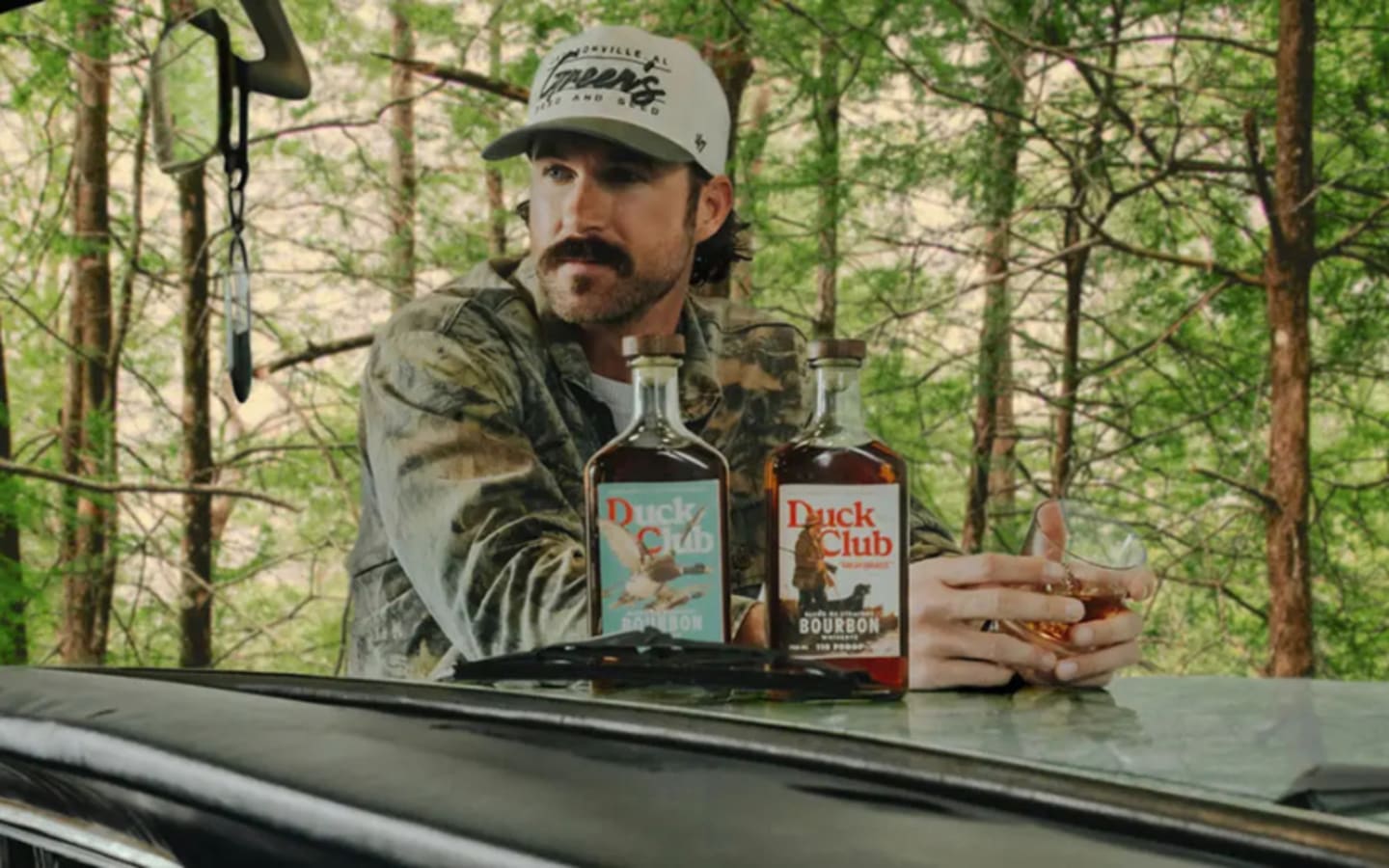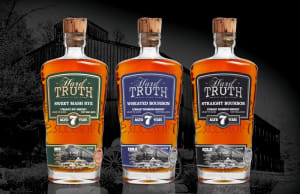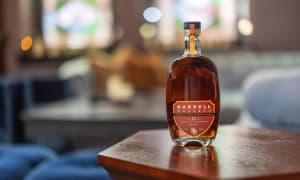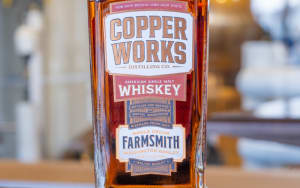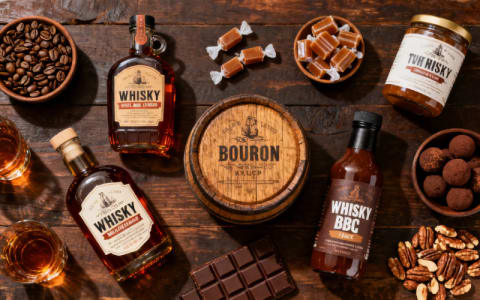Riley Green has never been the kind of guy who just sings about the country life – he lives it. From the duck blinds of Alabama at 4 a.m. to the stages of sold-out arenas, the man bleeds camo and honky-tonk in equal measure. So when word got out that the platinum-selling, four-time CMA winner was putting his name on a bourbon, nobody who knows Riley was shocked. The surprise is how good the whiskey actually is – and how fair the price tag looks sitting next to bottles that cost twice as much.
Duck Club Bourbon isn’t some celebrity cash-grab slapped together in a boardroom. Green co-founded the brand alongside Memphis-based Morningside Brands and a low-profile outfit called The Silent Group that actually knows how to make whiskey. The goal was simple: build a bourbon that feels honest, drinks smooth, and doesn’t empty a working man’s wallet. From everything coming out of the early bottles, they nailed it.
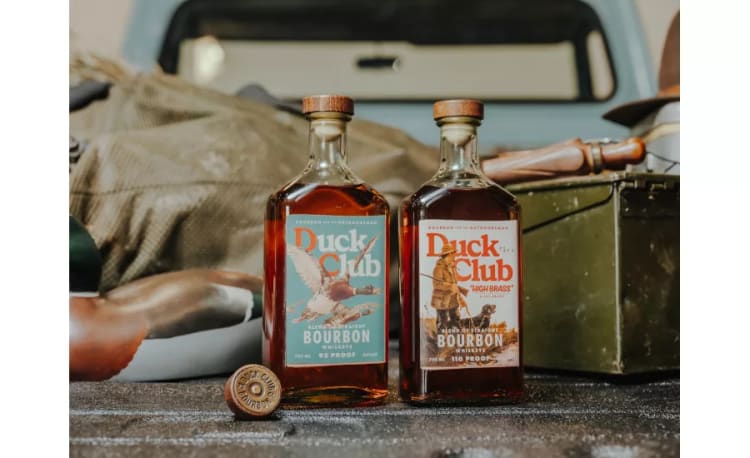
Image credit: Morningside Brands Inc.
Two expressions hit the shelves first. The standard Duck Club Bourbon comes in at 92 proof and runs about thirty bucks. It’s a four-grain blend – mostly five-year Kentucky juice with a little six-year wheated bourbon from MGPI thrown in for softness. Corn-heavy mash bills keep it sweet up front, rye brings the spice, and that touch of wheat rounds out the finish so it doesn’t bite you on the way down. Guys who’ve been pouring it over ice after a day in the blind say it tastes like what bourbon used to taste like before everything got “limited” and hundred-dollar price tags.
Step up to the High Brass bottling and you’re looking at 110 proof for around forty dollars. This one blends five-year rye-recipe bourbon with older eight-year Kentucky stock. Bigger corn, less rye than the flagship, but still enough pepper to remind you it’s bourbon and not some candy-flavored liqueur. At barrel proof levels for most small-batch releases these days, forty bucks feels almost old-fashioned – in the best way.
Both bottles carry the same promise: part of every sale goes toward protecting the wetlands that make waterfowling possible. For a lot of duck hunters, that alone is reason enough to throw some support behind the brand.
“I spend as much time as I can outdoors; the sport and the lifestyle around it are a big part of who I am,” Green said when the launch was announced. “Duck Club Bourbon feels like a natural fit. I’m proud to be a part of a brand that honors the lifestyle I love.”
McCauley Williams, the CEO at Morningside Brands, didn’t mince words either. “Duck Club Bourbon represents exactly what today’s bourbon drinker is looking for: authenticity, heritage, and whiskey quality at an incredible value,” he said. “By partnering with Riley Green, whose voice and values resonate so strongly not only with us, but also with the bourbon consumer, we’re building a brand that is crafted to have true staying power in the marketplace.”
Right now you can walk into a store in Arkansas, Florida, Georgia, Missouri, South Carolina, Tennessee, or Texas and find Duck Club on the shelf. The rest of the country gets its shot in 2026. Or you can skip the hunt and order straight from duckclubbourbon.com – they ship to 42 states, no middleman markup.
Green joins a growing list of country artists who’ve stepped into the whiskey game. Eric Church has his Whiskey JYPSI, Brad Paisley rolled out American Highway a few years back, and the list keeps getting longer. What sets Duck Club apart is how personal it feels. Riley didn’t just license his name and a signature on the label. He helped pick the mash bills, signed off on the proof, and made sure the price stayed where his fans – the same guys buying concert tickets and decoys every fall – could actually reach it.
Pour a glass of the 92-proof after a long day and you get vanilla, caramel, and a little oak that doesn’t try to beat you over the head. The High Brass brings more baking spice and heat that stands up whether you drink it neat or cut it with a splash of branch water from the thermos. Either way, it tastes like a bourbon that knows exactly where it came from and who it’s for.
In a world full of ten-year bottles that disappear the minute they hit the shelf and cost more than a good used shotgun, Duck Club feels like a throwback – the kind of whiskey you could imagine your granddad keeping on the tailgate next to the coffee pot while the dogs shake off in the decoys.
Riley Green built his career singing about real life: small towns, pretty girls, old trucks, and the kind of memories you only make when the alarm goes off hours before sunrise. Duck Club Bourbon is just the liquid version of all that. And if the early returns are any indication, it’s going to be sitting on a lot of hunters’ shelves – and a lot of bar carts – for years to come.
